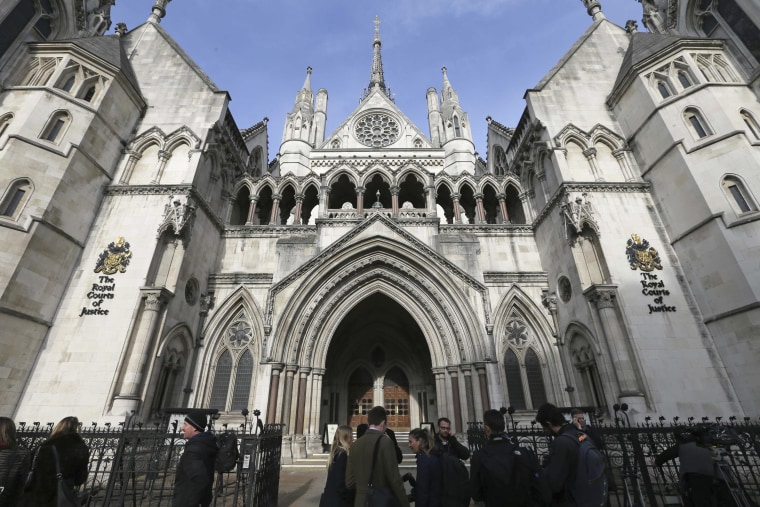LONDON — Uncertainty over "Brexit" deepened Thursday when a court ruled that Britain’s government can’t trigger the process of withdrawal from the European Union without approval from parliament — a decision that could scupper the entire process.
In a major blow for Prime Minister Theresa May, the High Court in London said her government needs the consent of lawmakers before launching Britain’s withdrawal from the bloc.
It opens the possibility that members of the House of Commons could vote against Brexit, defying British voters who chose to quit the EU by 52 percent to 48 percent in a June 23 referendum.
May has repeatedly promised to respect the outcome of the referendum and indicated she would trigger Article 50 — the two-year process of negotiations toward EU withdrawal — by the end of March 2017.
However, her government will now appeal Thursday’s ruling, which could leave her Brexit timetable in tatters.
British prime ministers can use the historic power of royal prerogative to make decisions on foreign affairs, such as withdrawal from treaties, without a parliamentary vote.
Campaigners filed a court challenge, arguing that leaving the EU would remove rights of employment and free movement — a change serious enough to require the approval of parliament.
Three senior judges ruled [PDF link here] that "the government does not have the power under the Crown's prerogative" to start EU exit talks.
May’s government has a working majority in the House of Commons but the Brexit referendum campaign was cross-party and members of her party could join opposition lawmakers and soften or even veto the plans.
While British voters chose Brexit in the referendum, the result was a surprise for the government which had campaigned to remain in the EU and did not draw up contingency plans for what Brexit might entail.

No details were presented about the details of Britain’s withdrawal — whether it would quit the bloc but remain inside a single market, for example — and many lawmakers believe the referendum result alone is not enough to allow Brexit on any terms.
May says those terms won’t be known until the negotiation process begins. She has only repeated the mantra that "Brexit means Brexit" — without elaborating — leaving many voters, industry leaders and major employers in the dark about what a post-EU Britain would look like.
The confusion has done little to calm markets, which have seen the British pound tumble against the dollar and the euro. The pound has lost almost one fifth its value against the dollar since June. Minutes after Thursday’s decision, the pound rose back up by 1.1 percent to $1.2430 as traders reacted to the news, Reuters reported.
The judges said their ruling was purely a question of law, not politics. "The court is not concerned with and does not express any view about the merits of leaving the European Union: that is a political issue," the judgement said.
“We will appeal this judgment,” the U.K. government said in a statement. It said Brexit was endorsed "in a referendum approved by an Act of Parliament … and the government is determined to respect the result of the referendum."
Financial entrepreneur Gina Miller, one of the leading claimants, said the case was "not an attempt to stop Brexit — just to ensure that parliament is sovereign."
It was the second embarrassment for May in less than 24 hours. At a dinner attended by journalists late Wednesday, Foreign Secretary Boris Johnson told his audience: "Brexit means Brexit and we are going to make a Titanic success of it."
Brexit campaigner Nigel Farage told reporters he was angered at the decision.
“I worry that a betrayal may be near at hand … I now fear that every attempt will be made to block or delay the triggering of Article 50,” he said. “If this is so, they have no idea of the level of public anger they will provoke.”
However, conservative commentator Mark Wallace said he doubted lawmakers would veto the whole Brexit process.
“Anyone who thinks MPs will reject Article 50 … deluding themselves,” he wrote on website Conservative Home. “The majority of the parliamentary Conservative Party now wants to get on with implementing the outcome of the referendum, regardless of which side they were on in the campaign. A pleasantly surprising number of Labour MPs have also taken on board the message from their Leave-voting constituencies. Having gone through the unpleasant experience of being at loggerheads with their voters on the doorstep, they rightly don’t want to defy them now they have spoken.”
